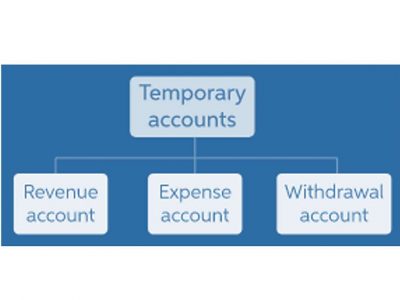
In this blog, we’ll cover essential accounting and bookkeeping practices that every law firm should implement to stay on track and safeguard its financial health. Whether it’s mismanaging client trust accounts or failing to track billable hours properly, accounting mistakes can quickly snowball into costly problems. People tend to use the terms bookkeeping and accounting interchangeably, but bookkeeping is actually just the first step in the accounting process. It involves recording and classifying financial transactions, preparing bank reconciliation, and tracking all income and expenses. There is no one-size-fits-all way, but Irvine Bookkeeping and bookkeeper law firm can help you weigh the pros and cons of each to find the best one for your business.
Why Is Accurate Law Firm Accounting Important?

In essence, the combined efforts of bookkeeping and accounting create a solid financial foundation for law firms. The accurate and up-to-date records maintained by bookkeepers provide the raw material that accountants transform into valuable insights. The symbiotic relationship between these financial functions empowers law firms to make well-informed decisions, seize opportunities, and navigate challenges with confidence. Key to the accounting process is the generation and examination of financial reports. These reports serve as powerful tools for understanding the business’s actual profitability, identifying potential areas of improvement, and fostering an acute awareness of cash flow dynamics.
Attorneys’ Exam training

Each month, the firm must meticulously reconcile the trust bank statement with the QuickBooks trust liability balance, as well as with the total of all individual client sub-accounts. When clients are slow to pay or don‘t pay their bills, you may find yourself unable to pay your staff or cover other overhead expenses. At least once a month, review your receivables and follow up on outstanding client invoices to keep your cash flow strong. Accounts receivables, also known as A/R, are amounts owed to you by clients. Staying on top of receivables is essential to the financial health of your business.

Legal Accounting
- This separation is the core of QuickBooks trust accounting and IOLTA compliance.
- Utilizing these features enables the generation of highly detailed profitability reports and ensures compliance by providing segmented financial data.
- Irvine Bookkeeping helps you keep track of costs that are tax-deductible all year long, so you don’t have to stress out at the last minute before tax time.
- Legal bookkeeping takes place before any accounting can occur and is an important administrative task for any law firm.
To open any business bank account, your practice needs to be registered with the state in which you are operating, have a registered business name, and have an Employer Identification Number (EIN). Before meeting with a bank representative, call ahead and ask what paperwork you need to bring to your initial appointment. Some firms will even use accrual for their monthly reports but then submit their year-end tax return as the cash method. When it comes to organization, getting off on the right foot should help you stay more organized now and into the future. To keep your firm on the right track, it is helpful to have a list of best practices to follow.
Book a personalized tour of Clio Accounting
- No matter how big or small your law firm is, accurate, timely payroll is essential—but it can be time-consuming to complete manually.
- When it comes to accounting for law firms, choosing the right accounting method is crucial.
- Regularly reconcile your bank statements, internal ledger, and individual client records to ensure accuracy.
- This involves the meticulous management of client funds, ensuring that they are kept separate from the operational finances of the firm.
- With these tools and knowledge, you can streamline your workflow and ensure accurate client billing.
- It offers built-in trust accounting, time tracking, billing, and compliance features tailored to the legal industry.
A mistake in your books can cost more than money — it can cost your license. Law firms are required to manage client law firm bookkeeping funds separately from the firm’s own operating funds. Mishandling these accounts can result in disciplinary action or even disbarment.
- This means that the product allows your firm not only to track where a file came from but also to allocate a percentage of the origination to individual users.
- When using double-entry accounting, all financial transactions will get sorted into specific categories (assets, liabilities, or equity), then once sorted; the two sides should match each other.
- Furthermore, it’s essential to consider an accountant who can effectively manage client billing and invoicing processes while maintaining accurate financial data.
- Transitioning from understanding income and revenue differentiation, it’s crucial to address the issue of data entry errors in legal accounting.
- Whether you’re looking for comprehensive financial planning for attorneys or simple invoicing solutions for attorneys, there’s something out there for everyone.
- Lawyers are not accountants and they often make the same common mistakes when it comes to accounting for law firms.
Step 1: Understand the Foundations of Legal Bookkeeping

Both general accounting and trust accounting are necessary for your firm’s success—and integrations seamlessly tie the two areas trial balance together. Accounting for law firms becomes so much easier when you work with an accounting professional from the beginning. Does not necessarily include more advanced reconciliation features like three-way trust account reconciliation. Link your bank accounts for up-to-date transaction information with little or no manual data entry.
Accounting Basics for Lawyers

In 2018, only 85% of what lawyers billed got collected (2018 Legal Trends Report). Keeping up on numbers daily, weekly, and monthly helps you remember what is Bookkeeping for Etsy Sellers happening to avoid these leakages from occurring on your watch. You can also make a difference in your firm by creating opportunities for financial growth. Your first month free includes full bookkeeping service — transaction recording, reconciliation, and a CPA-reviewed report — at no charge or commitment.